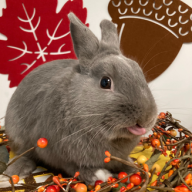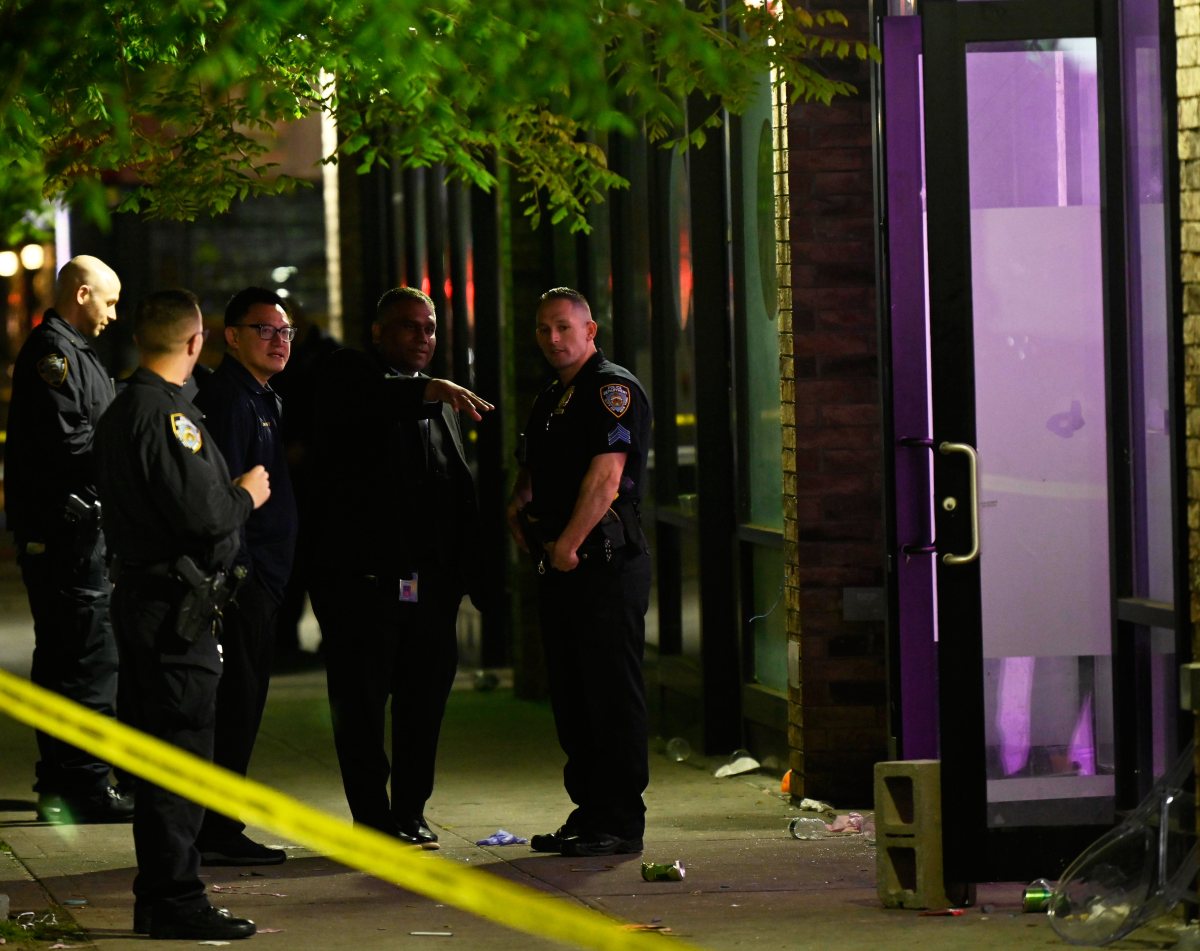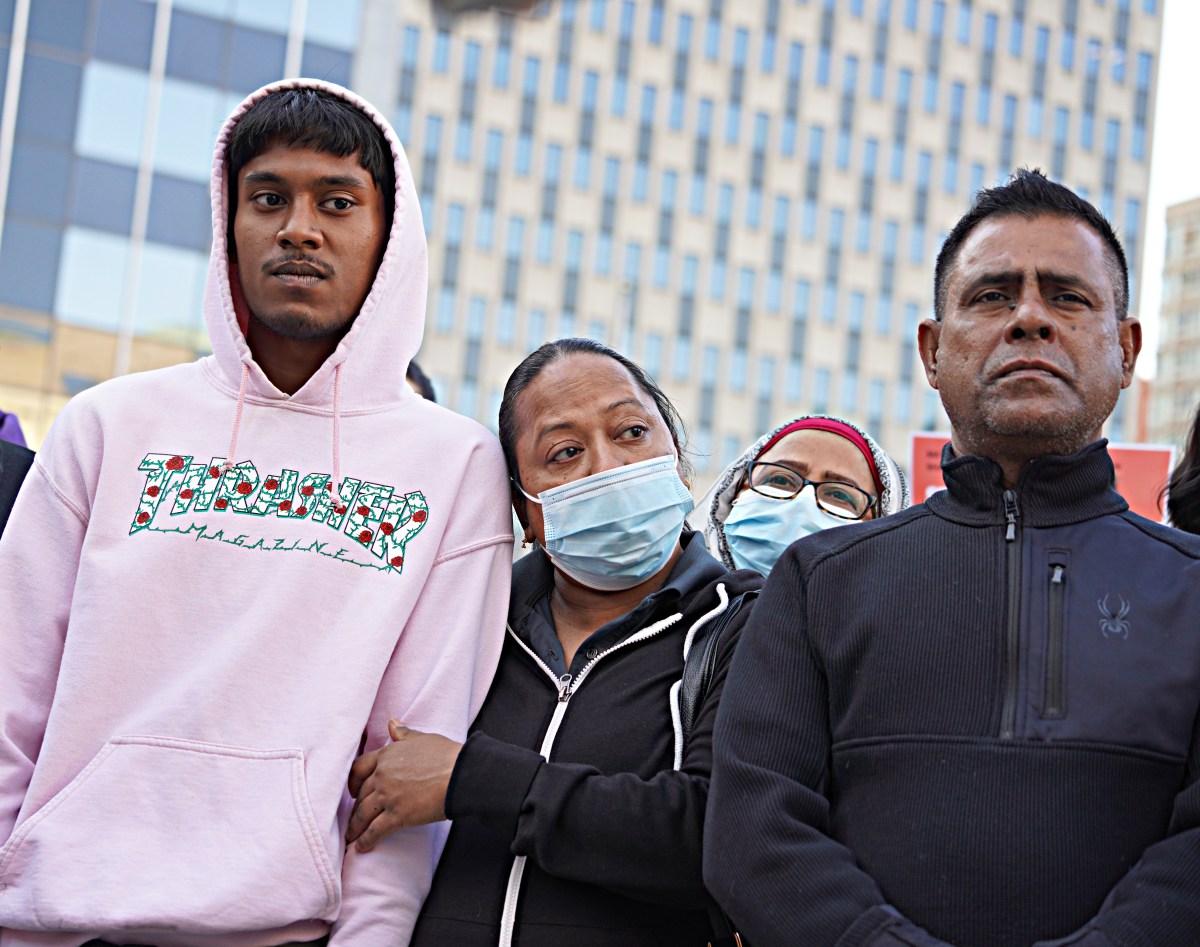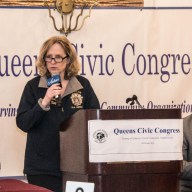By Cynthia Koons
With one common thread tying them together, these students – all participants in the school's agriculture program – are a rare group of New York City teenagers whose first priority is the earth.
“They are the first ones here in the morning, the last ones here at the end of the day,” said Steven Perry, the assistant principal of agriculture at John Bowne High School at 63-25 Main St. in Flushing. “They are aggies. Being an aggie is not only taking classes.”
Surrounded by bumper stickers that read “My other car is a tractor” and “Urban ag, growing in the city,” Perry spoke volumes about the hundreds of students who have passed through his program – many of whom are pictured on the walls of his small office.
“I see kids that are goal-oriented, that are focused, that are motivated,” he said. “I want this to be their focus. They rely on us to create experiences for them.”
To do that, Perry has students involved hands-on in myriad fields from aquaculture, zoology and veterinarian sciences to vegetable farming and arboriculture.
During the summers before their junior or senior years of high school, students are required to either live and work on a farm upstate or spend 300 hours working at a job that could be anywhere from the Queens Zoo to the New York Aquarium in Brooklyn.
Some students are also involved in an equestrian club that practices at Jamaica Bay. At flower shows, students learn different growing techniques for different types of plants.
“We have the luxury of having the ability to grade on academic and the hands-on,” Perry said.
These internship-like experiences all come after two years of rigorous course work combined with summers spent cultivating the four acres of fields behind John Bowne High School on Main Street in Flushing.
Walking through what looks like a miniature version of a Nebraskan farm at the school last Thursday, senior Christopher Scoufaras from Astoria pointed out a poultry house and acres of land that will be farmed for eggplants, tomatoes and peppers by this summer's crop of student aggies.
In return for working on the communal farm, the students are given 15-by-15 plots of land where they can grow squash, beans, radishes, peas, strawberries, blueberries, raspberries and grapes.
Whatever they grow on their own land can be brought home or sold. Produce from the communal farm as well as eggs from the hens are sold at a farm stand on Main Street during the summer.
For Scoufaras, working the land is not the most integral part of his agriculture education.
“I was going through the high school searching and I always wanted to be a veterinarian,” he said. When confronted with a choice between John Bowne High School's ag program and a zoology program offered elsewhere, he decided on Bowne.
For his summer experience, Scoufaras wound up on a swine farm in Doylestown, N.J.
“They had 150 pigs. It was 111 degrees in the shade one day,” he said. “I can't smell, so I guess I'm in the right field.”
He said he became part of the farmer's family during that summer.
“It's an experience because you become one of the members of that farm,” he said.
Scoufaras said he will definitely miss the ag program and the friends he made through it.
“I don't know if they do it purposely or if it's just accidental, but when you're in the ag program, you're in the same classes,” he said. “Usually the good kids are in ag.”
Perry said his focus was ensuring that many of his students end up in college. Scoufaras said he was still unsure of his post-grad plans.
“Our idea is if we get them off the block, if we expose them, they'll go,” he said. He said SUNY schools bring his students to visit their campuses around the state.
Still, 20 percent of last year's class did not end up in college.
At the Future Farmers of America awards banquet prior to graduation, Perry said year after year he sees an unequivocal spirit and energy in all of his students – college bound or otherwise – as well as their families.
“You should see the pride in these parents' faces. You should see the kids, the tears in their eyes,” he said. “If nothing else, they leave with an appreciation of being stewards of the land.”
Reach reporter Cynthia Koons by e-mail at news@timesledger.com or call 718-229-0300, Ext. 141.




























